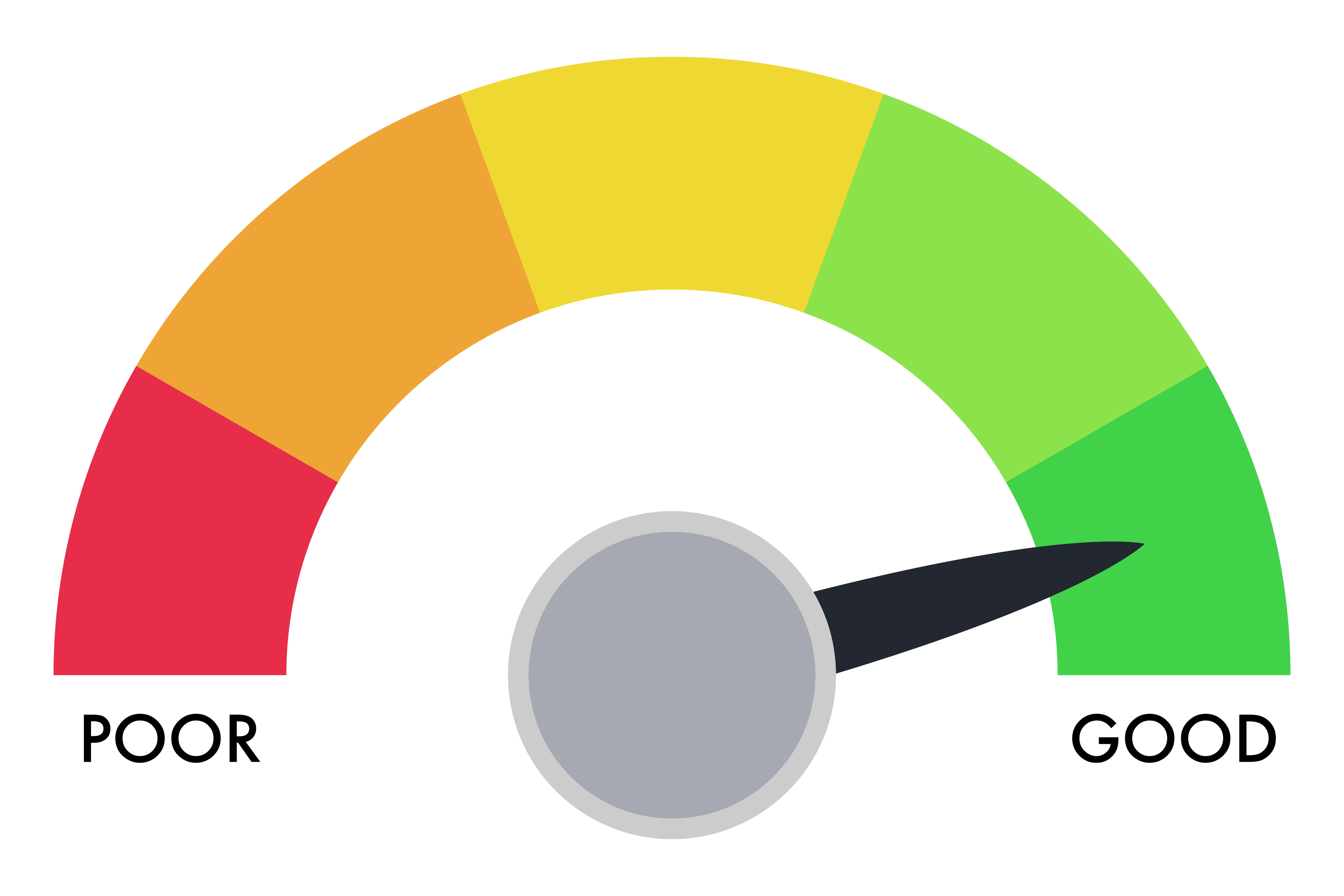Meeting all the requirements to join your dream course in a college that you love is a euphoric feeling for every student.
But when you are unable to gather the funds to finance your college education, it can be heartbreaking, especially if you have a low CIBIL score. Everyone knows it is hard to secure a loan when your CIBIL score is low.
But what if we said otherwise? What if you can secure an education loan even with a low CIBIL score? Keep reading to learn more.
What is CIBIL Score?
CIBIL (Credit Information Bureau India Limited) is an American group in India that maintains records of every borrower and anyone that has inquired about a loan. Banks and financial institutions share this information with CIBIL to facilitate checking the creditworthiness of every borrower.
Source: https://www.cibil.com/
How Is The CIBIL Score For Education Loan Calculated?
When you approach a bank for an education loan, you will be asked to provide a credit information report (CIR) from CIBIL. The report will contain your personalized credit history, based on which CIBIL will score you between 300 and 900.
If you are a first-time borrower, your CIBIL score for education loan will be negative or zero. But it is not something to be worried about.
The factors that determine your CIBIL score for education loans are
- Your consistency with your EMI payments
- The different types of loans you’ve taken
- The utilisation of your credit card’s limit
- The number of loans you’ve taken at a time
- The number of loans you’ve applied for in a short period
Also Read: Compare Education Loan Interest Rates of Top Banks in India 2024
CIBIL Score For Education Loan
Every lender takes into account your CIBIL score for an education loan. It allows lenders to check your ability to repay the loan.
As a student borrowing money for higher education, you must learn the importance of CIBIL score for an education loan. Your CIBIL score and co-borrowers will determine if your loan application will be approved.
Reasons You Need A Good CIBIL Score For Education Loan
When you have a good CIBIL score, banks will find you creditworthy, and you get a higher chance of loan approval. Banks will also provide you with convenient interest rates on education loans.
Here’s why you need a good CIBIL score for education loan,
- Show that you’re creditworthy
- Decreases the amount of paperwork you’ll have to handle
- Reduced interest rates
- Provides better negotiating authority
- You’ll enjoy more privileges, offers, etc.
However, fear not if you have a low or bad CIBIL score for an education loan. It is still possible to avail of a loan when your CIBIL score for an education loan is low.
Also Read: Study Abroad Loan Documents | Documents for Education Loan
The Benefits Of Availing An Education Loan
Due to the rising tuition cost, taking an education loan to finance higher education is often necessary. Education loans offer a wide range of benefits that extend beyond just covering tuition fees. Here are the key advantages:
Financial Support
Education loans for study abroad cover a wide range of expenses related to higher education. These expenses include:
- Tuition fees
- Housing
- Travel costs
- Textbooks and study materials
- Other educational expenses
Students do not have to rely heavily on family resources and scholarships. An education loan allows them to focus on their studies without worrying about financial burdens.
Also Read: 7 Stages Of Securing An Education Loan For Study Abroad
High Loan Limits
Banks and NBFCs offer sufficient loan amounts to cover education costs abroad. For example, secured loans can provide up to ₹3 crore, while unsecured loans can go up to ₹40 lakh, depending on the borrower’s profile. This allows students to access the substantial funds needed for their education abroad.
Lower Interest Rates
To encourage higher studies in India and abroad banks offer education loans at interest rates starting from as little as 8.15%. Public sector banks often provide additional concessions, such as a 0.5% reduction for female students, making these loans more affordable. Low interest rates translate to potential savings of lakhs of rupees over a decade of repayment.
Flexible Repayment Options
Most education loans come with easy repayment options. There is usually a moratorium period, during which students are not required to make any repayments. Some banks offer a repayment period of up to 15 years which lowers EMIs as far as possible. You can also shift between fixed and floating interest rates to take maximum advantage of the interest rate regime.
Tax Benefits
The interest paid on an education loan during the financial year is tax-deductible. There’s no limit to the amount you can deduct. You can claim this benefit for a maximum of 8 years or until the loan is fully repaid, whichever comes first.
If you avail of a loan of ₹40 lakhs and repay it over 60 monthly installments (five years) with an annual interest component of ₹4.5 lakhs, you can subtract the entire yearly interest from your gross income.
Building Credit History
Last but not least, timely repayment of education loans builds a student’s credit history. In the future, they might need a home loan or business loan and the credit history would go a long way to help them secure it.
Also Read: Lowest interest student education loans
What Is A Low Or Bad Credit Score?
In India, a credit score from CIBIL that is less than 600 is considered as low. Remember that CIBIL offers a number between 300 to 900. It does not state if the borrower is creditworthy or not. Banks mostly tend to avoid giving loans to customers with less than 600 credit score.
That does not mean no loan is available to those with a low credit score but it comes with a higher interest rate.
Most of the decisions are subjective and there are no laid down rules that are in the public domain. It depends on the bank, its officials, your or your co-borrowers CIBIL score, the collateral offered, the institution opted for, and many other factors.
How Does A Credit Score Impact A Student Loan?
A credit score can impact an education loan application in several ways:
Banks and NBFCs use credit scores to assess a borrower’s risk of default. A higher credit score increases the chances of loan approval and favorable terms.
Borrowers with good credit scores qualify for lower interest rates on their student loans. A bank will never disclose the perfect credit score they want but the higher the better. A credit score of 750 or more is considered suitable and above 800 is near-perfect creditworthiness.
Borrowers with low credit would need a co-borrower with a good credit score. If that is unavailable then collateral would be necessary. The main point is banks want to de-risk a loan as much as possible and a good credit score helps them achieve that with the least hassle.
Minimum CIBIL Score For Education Loan
In the case of most banks in India, 685 is the minimum CIBIL score for education loans.
Government banks may accept a CIBIL score for education loans even if it is lower than 685, given that it is not because of a serious issue. However,But private banks lack flexibility when there are CIBIL-related issues and will mostly reject your application if the score is below 685.
Some serious issues that will keep banks from providing you with an education loan are,
- Loan write-off or waive-off
- Debt arbitration
- Cheque bounces
Borrowing Money When You Don’t Have The CIBIL Score For Education Loan
There are plenty of ways for you to take a loan even when you don’t have the minimum CIBIL score for an education loan. Some of them include
- Approaching A Government Bank
Government banks like the Bank of Baroda, SBI, PNB, etc., have a lower CIBIL score for education loans. You can borrow money for education even with a score of 650 on your credit report when you apply for a secured loan.
For instance, you can take an education loan for overseas education from SBI with a CIBIL score of 650.
- Taking A Secured Loan or Line of Credit (LOC)
When you take a loan against collateral, it provides the bank with a guarantee that you will repay the loan promptly, lowering the risk of default. The collateral can be gold, private property, shares, or other valuables.
Banks and financial institutions are ready to offer secured loans to applicants with a low CIBIL score for education loans. Collateral should be of sufficient value and free of any disputes for the bank to approve an education loan.
- Getting A Joint Loan
If your CIBIL score is low or you don’t have one to start with, you can get a joint loan with a guarantor or co-applicant. Most banks and financial institutions approve a joint loan quicker too. In addition, the lender can cut you a better deal if your guarantor has good credit history and CIBIL score. You can always ask your parents to be your guarantor since there are no restrictions.
- Opting For A Smaller Loan First
When your CIBIL score for an education loan is low, a lender will see you as a risky client. This is true, especially when you are applying to borrow a huge sum with a low CIBIL score. One way to get around this is to apply for a lower sum and repay it yearly.
You can take a loan to pay for the first year of college and build your creditworthiness by repaying it in time. You can then approach the bank for a higher-sum loan to pay for the rest of your education. Repaying a small loan will be easier on your wallet and help build your CIBIL score.
- Borrowing From A Non-Banking Financial Company (NBFC)
When your CIBIL score for an education loan is too low, it is better not to borrow from a bank. The assessment process for a bank loan application will be strict and tedious, especially when your credit score is bad.
Source: https://taxguru.in/rbi/registration-nbfc-india.html
NBFCs, on the other hand, have comparatively relaxed policies against lending to people with low credit scores. Although NBFCs demand a higher interest rate.
- Presenting Proof Of Income To Show Your Ability To Repay The Loan
If you have a steady source of income, you can show proof of income to guarantee your ability to repay the loan. Evidence of salary, annual bonuses, or other sources of income can be used to substitute a poor CIBIL score. It will show your financial stability, and you can pair this method with borrowing a smaller amount first to show your creditworthiness before taking a bigger loan.
- Providing Records Of On-Time Repayment Of Other Bills
Your CIBIL score for an education loan is based on your repayment records for current and past debts. If you have not taken a loan before applying for your education loan, you will not have a CIBIL score. You can also add repayment records of utility bills to show that you are creditworthy. This might help slightly with getting your loan application approved.
- Checking And Resolving Credit Report Errors
Misreporting and mistakes are common in credit reports. It happens so often that you should double-check your credit report to see if all the claims are true. Act promptly and get any mistakes corrected as soon as you notice them.
Also, review the CIBIL score for education loans every six months to ensure it is error-free. In addition, make sure your credit report is revised regularly.
Source: https://www.cibil.com/consumer-dispute-resolution
Top 5 Indian NBFCs Offering Education Loans
Non-Banking Financial Companies (NBFCs) have emerged as a viable option for education loans, offering flexible terms and competitive interest rates. Here are five prominent NBFCs that specialize in education loans:
- HDFC Credila
- Avanse Financial Services
- Auxilo Finserve
- InCred Finance
- Eduvanz Education Loans
To help you compare the offerings of these NBFCs, we’ve compiled a table with key details:
| Amount | Interest Rate | Tenure | |
| HDFC Credila | No upper limit | 10-14% | Up to 12 years |
| Avanse | Up to 100% financing | 10.5-16.5% | Up to 15 years |
| Auxilo | Up to ₹90 lakhs | 10.25% onwards | Up to 12 years |
| InCred | Up to ₹60 lakhs | 11-13% | Up to 10 years |
| Eduvanz | Up to ₹100 lakhs | 15-45% | Up to 5 years |
Other Reasons For Rejection Of Education Loans
A low CIBIL score for an education loan might not be the only reason behind the rejection of a loan application. Other factors that come into play are
Poor Academic Records
Students who have secured a management quota admission due to poor academic records have a lower possibility of securing a loan. This reduces your creditworthiness too.
College’s Level Of Recognition
Banks are more likely to reject your application even when you have the required CIBIL score for an education loan if the college is not well recognized. You’ll not be able to secure a loan if the college has a poor placement record too.
The Course
Some fields of study have a higher potential for earning, and banks are ready to provide education loans to students opting for them. For instance, you are much more likely to secure a loan if you apply for medicine, engineering, or management.
Size Of The Loan
When the sum is higher than ₹ 7.5 lakhs, the bank will need a guarantor or co-applicant. Then the bank will reject your loan application if you cannot meet this requirement. Note that you can borrow less than ₹ 4 lakhs without a guarantor.
Citizenship
Students of foreign countries and non-residential Indians will not be able to secure an education loan in India because of higher risk.
How Can I Make This Easier?
Source
After understanding the potential reasons for education loan rejection, it’s clear that one effective way to avoid rejection is to apply to a university where the cost of studying isn’t prohibitively expensive. However, the university should still be a reputable institution with good global rankings, a strong alumni network, and solid recent placement records. Finding such universities can be challenging, but that’s where SelectRight can make a difference.
SelectRight leverages an advanced AI-driven platform that analyzes over 8 million data points from more than 40,000 programs across the globe. This allows it to match your academic profile, career goals, and financial situation with the best universities that offer a high return on investment (ROI). The platform eliminates guesswork, ensuring that you apply to institutions where you have a strong chance of admission, financial aid, and a successful post-graduation career.
Here’s how SelectRight works:
- Create your profile on the SelectRight platform, entering your academic background, test scores, and career aspirations.
- The AI algorithm processes your data and generates a shortlist of universities that best match your profile and goals.
- Compare these options using detailed insights on tuition fees, alumni networks, and placement records.
- Receive guidance from unbiased experts to help you make the best decision.
- Connect with alumni, faculty, and peers from your shortlisted universities to build a strong network before you even apply.
Once you’ve identified the ideal university, the next step is securing an education loan that you can easily get approved, without overpaying or accepting less-than-ideal terms. This is where FundRight comes in.
How Fundright Streamlines the Education Loan Process
Finding the right loan product from multiple lenders can be challenging, especially when students are focused on their studies. FundRight makes this process extremely simple. It is the world’s first loan-bidding platform that helps you easily identify the best loan option available.
To get started, register on FundRight and fill out your profile with details about your course and financial requirements. Provide information about the university you wish to attend, admission status, and the loan amount you need.
Within two days, you’ll receive competitive loan offers from 15 leading banks and NBFCs, tailored to your needs. You can also securely upload your documents through FundRight and get your loan approved in 10 days.
Over 60,000 students have already used FundRight to secure their education loans, saving up to ₹23 lakhs in the process. If you’re aiming for Spring ’25 admissions, sign up with FundRight today to secure the best education loan for your future.
Frequently Asked Questions
1. What do I do when I cannot find a co-applicant or guarantor for my education loan?
A few lenders do not require a co-applicant or guarantor for an education loan. A thorough research can help solve this dilemma.
2. What expenses does an education loan cover?
You can use an education loan to pay the following
– Library, lab, and other fees
– Hostel fees
– Tuition
– Cost of uniform and books
3. Who can be a co-borrower?
Ideally, your parents or guardians can be your co-borrower or co-applicant. If you are married, your spouse can be your co-borrower too.
4. Is there a maximum limit on education loans?
Yes, most lenders will limit education loans to ₹10 – 15 lakhs if you’re studying in India and ₹20 – 30 lakhs if you’re studying abroad.
5. What is the minimum CIBIL score for an education loan?
The ideal CIBIL score for an education loan is 750+. It can become difficult to secure a loan if your CIBIL score is lower than 600.






















